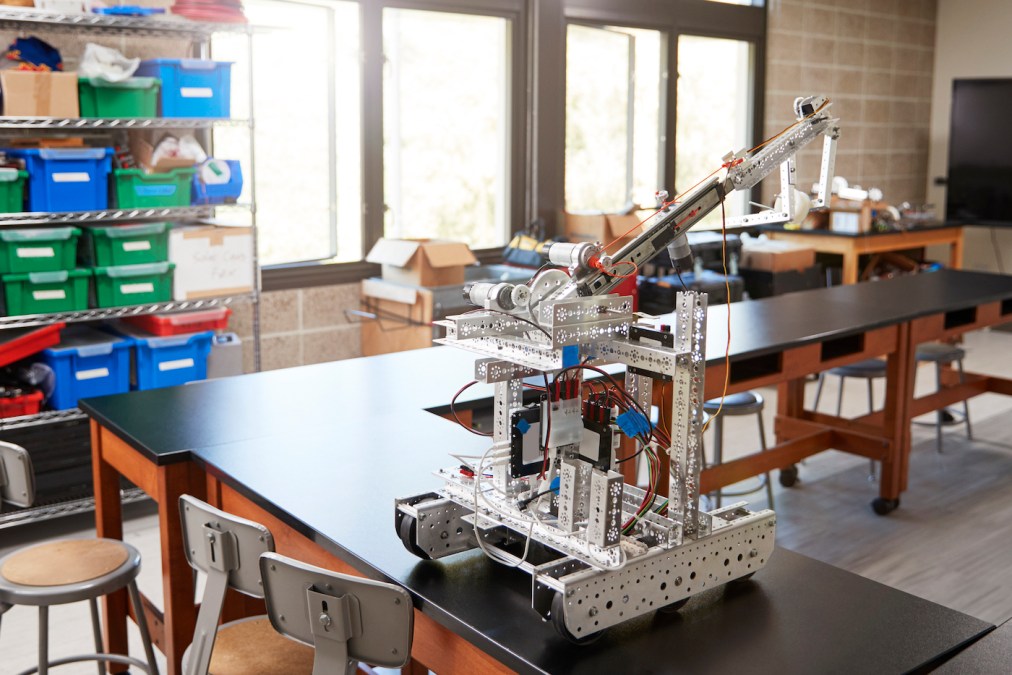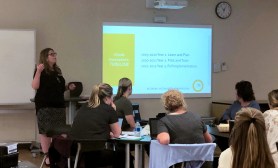The STEM teacher shortage primarily disadvantages minority students

High-school students in predominantly minority or low-income communities are among those who are most disadvantaged by a persistent shortage of teachers specializing in subjects like physics, chemistry, math and computer science, the head of an education research group told EdScoop.
Bob Goodman, director of the New Jersey Center for Teaching and Learning, a nonprofit group that develops resources for educators in science, technology, engineering and mathematics, said a teacher shortage results in a scarce availability of these classes. The effect is that minority and low-income students, in urban and rural districts alike, are disproportionately weeded-out from rewarding career opportunities that depend on training in STEM fields.
Physics, for example, is a building block for a range of STEM disciplines. But according to the American Institute of Physics, only 39 percent of high-school seniors in 2013 reported taking even a single physics class before graduation. That figure shrunk to below 30 percent when only counting black and Hispanic students.
“If the teacher shortage isn’t meaningfully addressed… things will continue as they have been,” Goodman said. “Affluent kids will have access to these nice career paths and poor and minority students won’t.
Goodman’s group, which creates resources for teachers to develop their curriculums and pedagogical styles, has created more than 300 new teachers in STEM subjects over the past decade, he said. The New Jersey Center for Teaching and Learning offers more than 200,000 slides, 6,000 documents and 8,000 videos on its website to help educate teachers and students in science, math, computer science and language arts.
Thousands of students who wouldn’t otherwise have had a teacher or had the opportunity to learn STEM subjects now have access to this education, Goodman said.
But the teacher shortage is also fueled in large part by STEM professionals being recruited to fields far more lucrative than education. STEM degrees can open many doors for students and often lead to high-paying jobs. As a result, many states have encouraged students to go into these fields in hopes that it will transform a region’s workforce and economy.
Yet even if teaching were a more attractive profession, Goodman said, there simply aren’t enough people majoring in science and technology to generate the number of teachers needed by districts across the United States. He said that nationwide, there are only about 6,000 physics majors, but more than 30,000 vacancies for physics teachers. That’s why he’s also suggesting current educators be retrained to teach physics.
“There is no mathematical solution based off of these 6,000 physics majors,” he said. “On the other hand, there are more than 3 million teachers. If we can get 1 percent of the teachers to learn physics and have them teach it, then we got 35,000 physics teachers.”
Retraining current educators to fill the vacancies in STEM education not only addresses the numbers issue, but it also creates a teacher population that’s more diverse than the overall science and engineering workforce, about half of which is comprised of white men, according to the National Center for Science and Engineering Statistics
But diversity among teachers can dissuade minority students from an impression that they don’t belong in STEM jobs, Goodman said.
“If you teach someone in that community who looks and has a background similar to the people they are going to be teaching, and you teach them physics, there’s an implicit message there that I can learn physics too,” he said.




